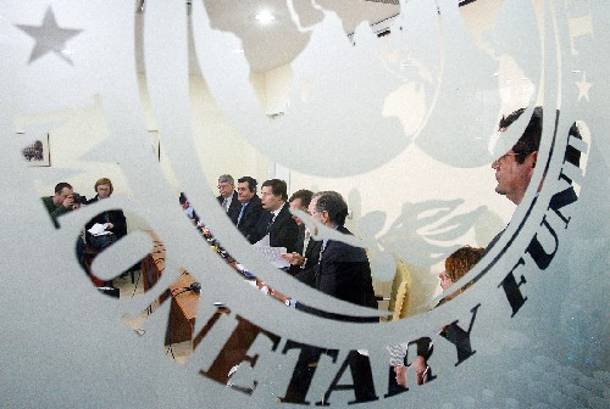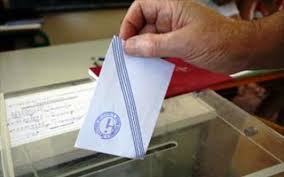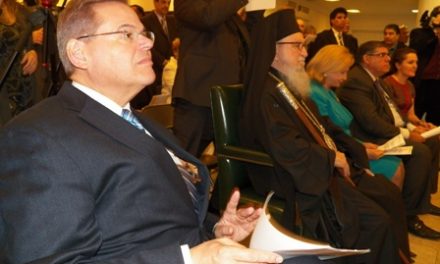By Tim Worstall, Forbes
It looks as if Greece’s problems over trying to reach a debt deal have just got rather worse. For we’ve the IMF and the Eurogroup operating as a pincer movement to tell the Greeks that they can’t have a quick deal. Meaning that the odds of their running out of cash to keep the bills paid before a comprehensive deal is reached have just gone up. Unless, of course, they decide to abandon their red lines and simply concede everything that the troika is demanding. Which is the point and purpose of the negotiating tactic of course.
Recall the basic position. Greece has a vast debt burden, one they’ve not really got much chance of repaying. Although it is true that the concessionary terms they’re getting from the official creditors represented by the troika (the EU itself and the eurozone governments as the Eurogroup, the ECB and the IMF) mean that the burden in cash flow terms is nowhere near as bad as the headline numbers suggest.
Everyone’s also pretty sure that Greece is going to need a third bailout at the end of this summer: it’s not going to be possible for it to return to the commercial markets and be able to finance itself that way. OK, but in the interim, while people try to figure out what that comprehensive deal should be they need the cash to simply keep the place running. And that needs to come from the last part, the last tranche, of the second bailout deal. There’s about €7 billion or so still to come from that. And that almost certainly would allow Greece to carry on until the conclusion of the larger deal.
However, the troika is demanding that Greece do certain things to gain that last tranche. Certain things that Syriza was specifically elected to oppose. Which is a bit of a problem really. And now we’ve got the news that the IMF will not allow some partial, quick and easy, deal just to allow the situation to stumble on a little longer. It must be a comprehensive deal, even to get that last tranche of the second set of the money:
The International Monetary Fund has ruled out striking a “quick and dirty” deal with Greece, after European leaders failed to reach an agreement over the country’s future at a summit in Riga on Friday.
As Greece’s senior creditor, there have been fears the IMF is ready to pull the plug on another financial aid package unless a “comprehensive” agreement is reached with Athens soon.
Fund chief Christine Lagarde dismissed the prospect of a partial release of bail-out cash that would keep Greece solvent up until the autumn.
“It has to be a comprehensive approach, not a quick and dirty job,” Ms Lagarde told an audience in Rio.
So far so bad for Greece. But then we also learn that the Eurogroup will not release partial funds either. It must be a deal that the IMF will approve, or it will be nothing:
European leaders have told Greece there will be no deal to release desperately needed bailout aid without approval from the more hardline International Monetary Fund, setting up a stand-off that could leave cash-strapped Athens without funds well into June.
The message, delivered by Angela Merkel, the German chancellor, to Alexis Tsipras, her Greek counterpart, at a private meeting in Riga, Latvia’s capital, as well as by lower-level European officials to their Greek interlocutors, comes as the IMF has been weighing whether to withhold its €3.6bn portion of the €7.2bn bailout tranche Athens needs to avoid default.
That’s a quite lovely pincer movement there actually, an example of good game theory that Yanis Varoufakis might well enjoy (for he is a researcher into game theory) as an intellectual effort if it weren’t actually directed at him in his job as Greece’s finance minister in charge of these negotiations.
And this also explains why the Eurogroup was so keen to have the IMF involved in the bailout itself. It’s no secret that European Union negotiations go to the wire and then end up being resolved by rather shabby little back room deals at the last moment. And the harder line (Finns, Germans and so on) governments in the eurozone were really very keen indeed that this didn’t happen again. So, bring in the IMF, an organisation not subject to EU politics and politiking, and that will put some backbone into the negotations.
As has just been shown has happened. Greece now has to offer a full deal to get that last tranche. For the IMF won’t release funds without one and the Eurogroup won’t release without the IMF.
The odds on a Greek default or a Greek cave in to the troika’s demands have just gone up. For there’s not much else left if this negotiating technique among the troika holds.



















